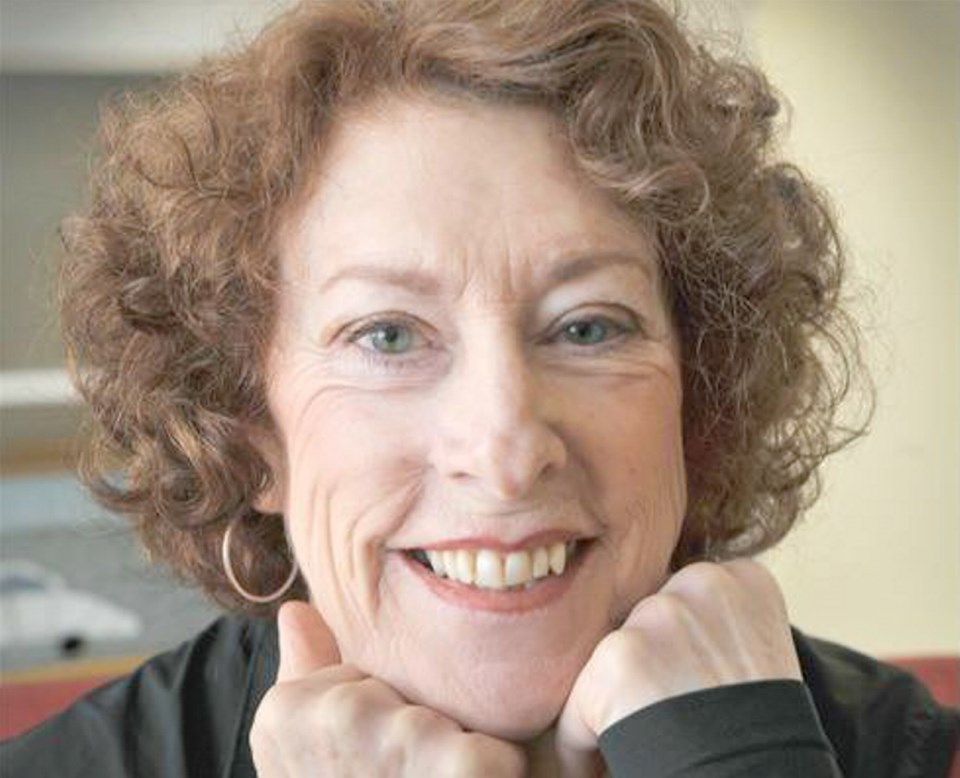After four cancer relapses in the past five years, movie costume designer Trish Keating knew that without a miracle, she had just months to live.
Her reprieve came a few months ago in a most unlikely form: a blood pressure pill that no one had ever used, or even considered, for cancer.
“I was months away from death. So this is really like a miracle. And so hard to believe,” Keating said Monday in an interview at her home before joining her walking group for a two-hour trek.
Keating is healthy now but she has scars and lingering side-effects from five years of cancer treatments, which began when two feet of her colon were removed after a colonoscopy detected Stage 3 cancer. Recurrences in other parts of her body were attacked with radiation, surgery and chemotherapy.
Last fall, her oncologist, Dr. Howie Lim, had to deliver the harsh news that she would probably not survive.
But at that time, the B.C. Cancer Foundation was raising money for its new personalized onco-genomics research program, which sequences the cancer genes of patients with uncontrolled or incurable cancers. While standard pathology tests identify cancer types, the new program is designed to tell doctors a lot more about the abnormal genes and biological engines behind an individual patient’s cancer. With that information, experts can check drug databases to find something tailored to the patient’s specific cancer.
The first “mystery” patient to have his cancer genome sequenced was the late Dr. Donald Rix, a biomedical industry giant and B.C. philanthropist. His identity was revealed on the same day that a cancer foundation gala helped raised $5 million for the personalized onco-genomics program. That meant that the costs of sequencing Keating’s cancer and that of hundreds of other patients can be covered through the clinical trial.
Lim said that he suspected Keating’s last surgery, to remove a tumour on her spine, was only going to relieve her pain, not cure her. Sure enough, only a few months later, cancer cells were found in several lymph nodes throughout her body.
“When I told her she was palliative, that our best option was to consider more chemotherapy to prolong lifespan, by two to three years, she felt I was giving her a death sentence,” Lim said in an interview.
Then it was decided to offer Keating participation in the new program.
Keating said she knew the blood pressure medication was experimental when it came to cancer. It was a “risk worth taking because the alternative was just more poisoning,” she said, referring to the toxic effects of chemotherapy drugs.
With personalized onco-genomics “we are trying to figure out the blueprint of patients’ cancers, the (protein) pathways driving growth,” said Lim. “Everyone’s cancer is different, genomically, so it’s helpful to try to individualize the treatment.”
Using gene sequencing information gleaned from the tumour removed from Keating’s spine, experts at the BC Cancer Agency’s Michael Smith Genome Sciences Centre matched it to a blood pressure medication that blocks the abnormal proteins identified in the tumour sample.
Five weeks after starting the blood-pressure drug, Keating had sophisticated PET-CT imaging that revealed a profoundly improvement. At the two-month mark, just recently, another scan showed that she had “barely detectable” cancer.
Lim said he doesn’t want to suggest that everyone will benefit from personalized onco-genomics. It is still experimental, he cautions, and not all patients have “durable” results.
Lim is writing up Keating’s case for publication in a medical journal so that doctors around the world can benefit from the blood pressure drug discovery and perhaps use it on other patients. (He is withholding the name of the drug until his paper is peer-reviewed and published.)
“We’ve never tried this medication before nor has anyone else to my knowledge. Yes, we hit a home run. But it takes a lot of steps and we could never do this without the Genome Sciences Centre.”
Lim said the possibilities of personalized cancer treatment are exciting, but doctors and scientists must manage expectations so hopes don’t spiral out of control.
“In general, in oncology, you make an educated guess about what treatment to offer. Genomic treatment helps us guess better,” he said. “But we don’t know if every patient should have it. We have seen patients where it hasn’t helped. So in our research we are trying to answer what is the utility, and how often will it change treatment?”
Lim said he shares Keating’s shock, awe and happiness, especially since up until recently he was mostly giving her bad news.
“It’s been really empowering to finally offer some hope,” he said. “It’s very true that some amazing things have happened. I am shocked that this heart medication has worked so well,” Lim said.
He said Keating’s blood pressure has been closely monitored over the past three months to ensure the medication, which Keating believes she may be on for life, doesn’t lower it too much.
��



